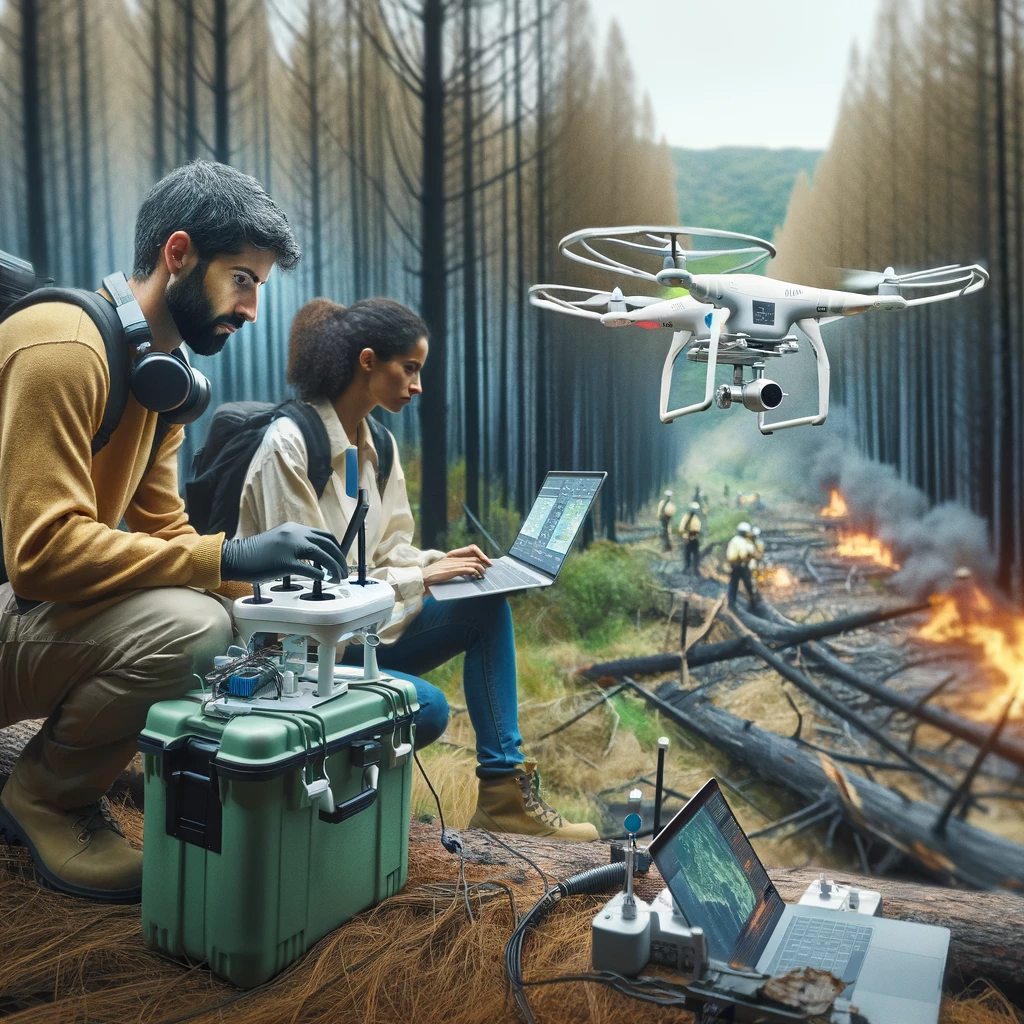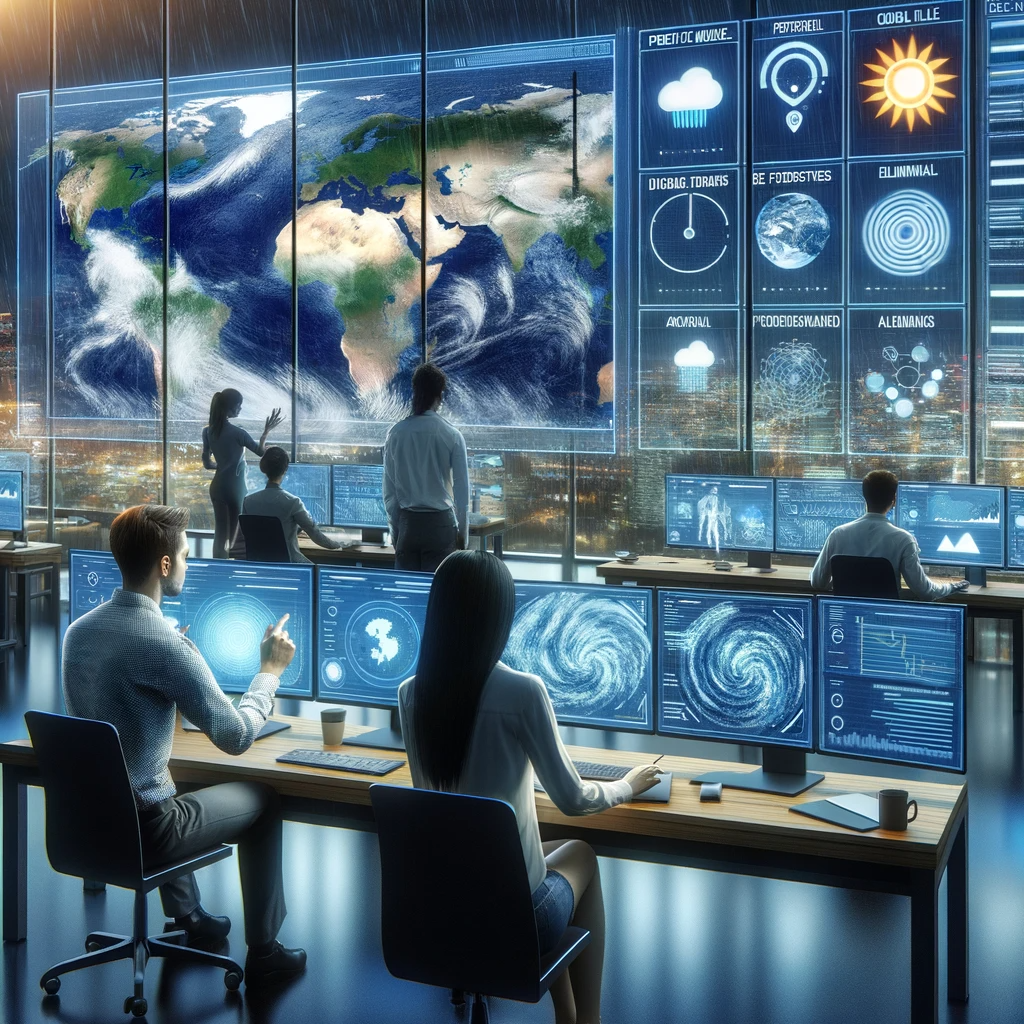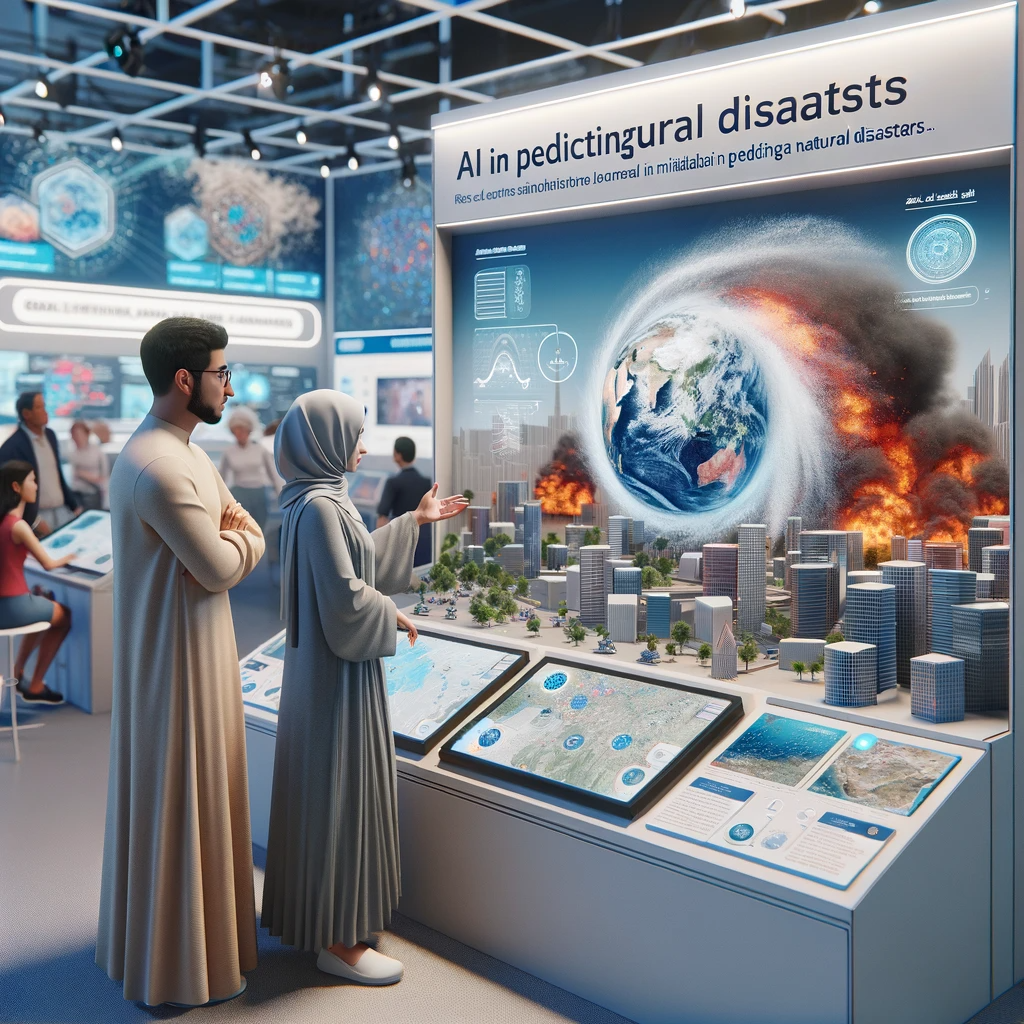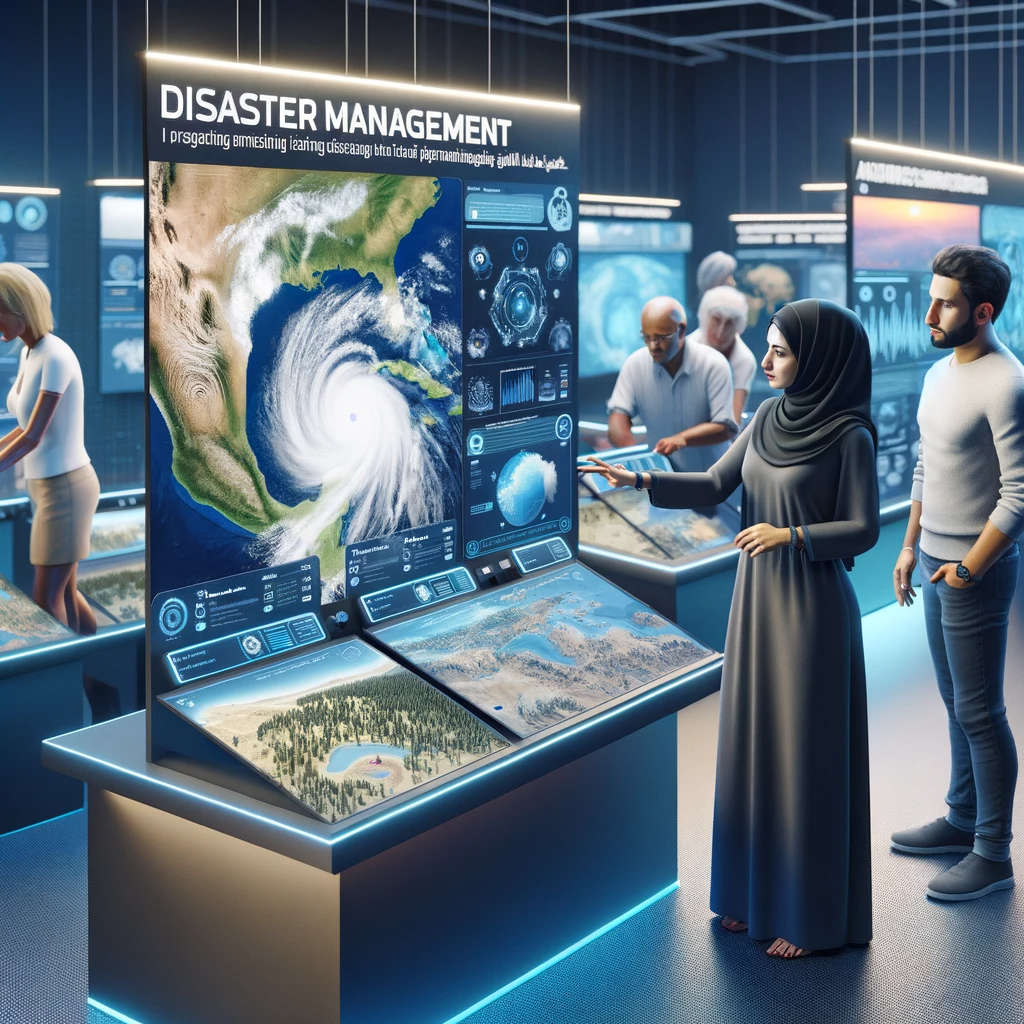In recent years, Artificial Intelligence (AI) has emerged as a pivotal tool in various fields, offering groundbreaking solutions and innovations. Its application ranges from healthcare and finance to environmental protection and disaster management. Notably, in the realm of disaster management, AI’s potential is drawing significant attention, particularly as the world witnesses an increasing frequency and severity of natural disasters. From devastating hurricanes to catastrophic wildfires, these calamities pose a growing threat to life, property, andthe environment, underscoring the urgency for more effective prediction and prevention strategies.
The integration of AI in this context presents a beacon of hope. AI’s advanced data analysis, predictive modeling, and real-time monitoring capabilities offer a promising avenue for enhancing disaster preparedness and response. However, this leads to a crucial question: Can AI effectively predict and prevent natural disasters? This article aims to investigate the applications of AI in disaster management, exploring its feasibility, the ethical considerations involved, and its potential in revolutionizing how we approach natural calamities.
Structured into six sections, the article will cover the current state of disaster management, AI’s role in disaster prediction and mitigation, the feasibility and challenges of AI in this field, ethical considerations, and the future prospects of AI in transforming disaster management practices. Through this exploration, we aim to provide a comprehensive understanding of AI’s potential impact in predicting and averting the devastation caused by natural disasters.

The Current State of Natural Disaster Management
Natural disaster management traditionally relies on a combination of meteorological data, historical patterns, and earth science research to predict and respond to catastrophic events. Techniques like satellite imagery, seismic monitoring systems, and hydrological models have been essential in forecasting disasters such as earthquakes, floods, and hurricanes. However, these methods often face limitations in accuracy, timeliness, and predictive capabilities, which can hinder effective disaster preparedness and response.
One of the primary challenges in current disaster management strategies is the unpredictability and complexity of natural events. Traditional methods may not provide sufficient warning time to mitigate the impact of disasters effectively. Additionally, resource allocation for disaster response can be challenging without accurate predictions of a disaster’s scale and impact.
The field of disaster management has seen significant technological advancements over the years. Developments in remote sensing, geographic information systems (GIS), and now AI are enhancing our ability to predict and respond to natural disasters more effectively. These technological evolutions mark a shift from reactive to more proactive disaster management approaches.
AI in Natural Disaster Prediction
AI has become increasingly instrumental in predicting natural disasters. By utilizing machine learning algorithms, predictive analytics, and data modeling, AI can analyze vast amounts of data from various sources, including weather stations, satellites, and geological surveys, to predict natural disasters with greater accuracy and speed.
In earthquake prediction, for instance, AI algorithms analyze seismic data to identify patterns that precede earthquakes. For floods and hurricanes, AI systems assess meteorological data to forecast the likelihood, timing, and intensity of these events. These AI-driven predictions provide valuable insights that enable earlier warnings and more effective disaster preparedness.
Successful AI applications in disaster prediction include the use of deep learning models to predict hurricane trajectories and the development of AI systems for real-time flood forecasting. These case studies demonstrate AI’s potential in enhancing the accuracy and timeliness of disaster predictions, significantly contributing to saving lives and reducing property damage.
AI in Disaster Prevention and Mitigation
AI plays a crucial role in enhancing disaster prevention and mitigation strategies. AI-driven tools and systems are used in various stages of disaster management, from risk assessment and early warning systems to planning and executing response measures.
AI technologies facilitate the analysis of potential disaster impacts, enabling authorities to devise more effective mitigation strategies. For example, AI models predict the potential paths of wildfires, allowing for better resource allocation and evacuation planning. Similarly, in urban areas prone to flooding, AI can help in modeling various flood scenarios, aiding in the development of flood defense systems and urban planning.
AI-driven tools for disaster risk reduction include predictive models for assessing the vulnerability of regions to specific disasters and decision-support systems that provide real-time information to emergency responders. These tools aid in enhancing preparedness and ensuring a more coordinated and efficient response to natural disasters.

Feasibility and Challenges of AI in Disaster Management
The feasibility of utilizing AI in natural disaster scenarios is promising yet accompanied by significant technical challenges. Implementing AI effectively requires accurate and comprehensive data sets, which can be difficult to obtain, especially in real-time during a disaster. The variability and unpredictability of natural disasters also pose a challenge to AI systems, which rely on historical data patterns that may not always accurately predict future events.
Another critical aspect is the technical limitations in current AI models. These systems might struggle with the vast and complex nature of environmental data, potentially leading to inaccuracies in predictions. Moreover, the development and maintenance of these AI systems require substantial resources, expertise, and continuous updates, which may not be feasible for all regions, especially those with limited technological infrastructure.
Reliability and accuracy of AI predictions in disaster management are paramount. Misjudgments or false alarms can lead to significant consequences, including resource misallocation, public panic, or complacency. Ensuring the precision of AI predictions and their proper interpretation by disaster management professionals is a crucial challenge that needs addressing.
Ethical Considerations and Societal Impact
The use of AI in disaster management brings several ethical considerations to the forefront. Data privacy is a significant concern, as AI systems often process sensitive personal and geographical information. Ensuring that this data is used responsibly and securely is essential to maintain public trust.
AI systems can also inherit and perpetuate biases present in their training data, potentially leading to unequal or unfair disaster response efforts. This could disproportionately affect vulnerable communities, who are often most impacted by natural disasters. Ensuring that AI systems are unbiased and equitable in their predictions and recommendations is a major ethical challenge.
Balancing the benefits of AI in disaster management with ethical and moral implications is crucial. While AI can significantly enhance disaster preparedness and response, its application must be guided by ethical principles to ensure that it serves the best interests of all sections of society, especially those most at risk.
Future Prospects and Conclusions
Looking ahead, advancements in AI technology hold great potential for natural disaster management. Future developments may see more sophisticated AI models capable of analyzing increasingly complex and vast data sets, leading to more accurate and timely predictions. Integration of AI with other emerging technologies like IoT and blockchain could further enhance disaster response mechanisms.
The long-term impact of AI on disaster management could be transformative, leading to more proactive and efficient disaster preparedness and response strategies. This could result in reduced loss of life and property and a more resilient infrastructure to face natural calamities.

In conclusion, while AI presents a promising avenue for revolutionizing disaster management practices, it is crucial to navigate the associated technical, ethical, and societal challenges carefully. The future of AI in this field depends not only on technological advancements but also on our ability to address these challenges responsibly, ensuring that AI serves as a tool for the betterment of all, especially those most vulnerable to the impacts of natural disasters.
